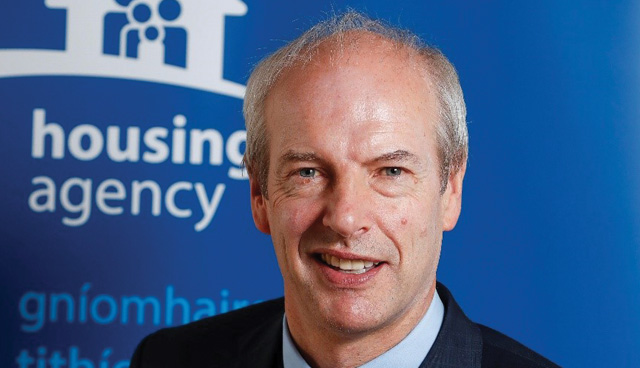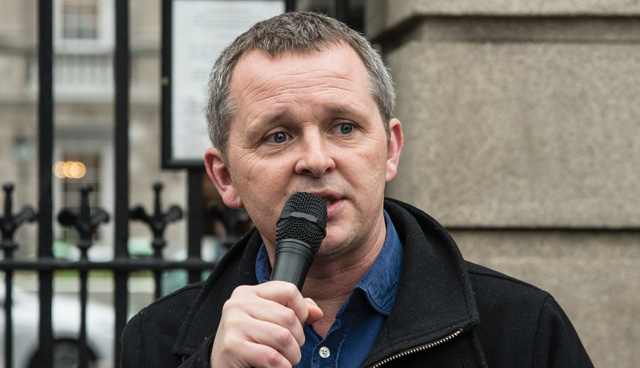
Homelessness figures increase
1st August 2018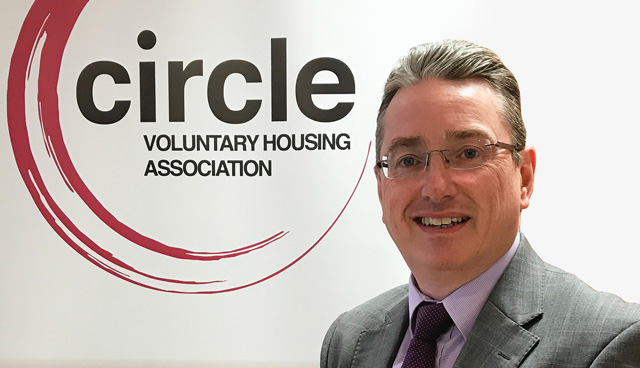
Circle Voluntary Housing Association: New horizons
1st August 2018Round table discussion: Challenging homelessness in Ireland

Bord Gáis Energy hosted a round table discussion on the different aspects of addressing homelessness in Ireland.
Everyone agrees that getting a sufficient supply of housing is crucial to solving the housing and homelessness crisis, but what is holding back supply? Why isn’t ‘housing need’ leading to ‘housing supply’ as you might expect in a functioning market?
Pat Dennigan
There is a requirement for about 30,000 homes per year to make an impact on the housing lists and every year you don’t hit that amount the problem gets bigger, with more to achieve in the coming years. A number of factors have impacted on the supply in Ireland. We have relied on the private sector to provide all housing and the financial crash destroyed that capability. Recovery has been slow and needs to be accelerated. The planning process is slow in this country and it is also uncertain. It takes a long time to go from green field to something people can live in. The cost of construction, including site cost, is also an issue. And lastly, the skills shortage that resulted from the crash has impacted on the provision of new homes. Although many of the targets within ‘Rebuilding Ireland’ are being met, no one realised the crisis would be as deep as it is.
Mark Prentice
It is worth emphasising a couple of those points, particularly the continued growth of the problem. We got involved with Focus Ireland in 2015 and the numbers at that stage were 600 families and 1,500 children experiencing homelessness and the last number I have seen is 1,700 families and 3,800 children accessing homelessness services. Despite a lot of investment, it is still a growing problem and clearly that is going to require a different response. On the skills shortage, as a commercial entity we deliver a lot of our services within customers’ homes such as servicing and repairing gas boilers. We are finding it difficult to get tradespeople in Ireland. A lot of tradespeople left Ireland and we are now competing for scarce resource with commercial developers vying for experienced resource. Access to the right type of labour is critical in delivering affordable housing in the near future.
Maria Bailey, TD
The question is phrased negatively but we have started to make progress on some of the areas. We have to recognise that construction fell by 90 per cent in the downturn. We now have 850 sites on council sites and state-owned land around the country that will deliver over 13,000 units next year and early into the following year. While 600 families left emergency accommodation last year it wasn’t envisaged that treble that number unfortunately would end up in an emergency situation. Over 300 housing needs are met through HAP [Housing Assistance Payment] every week and we now have over 500 rooms in family hubs. It is a growing problem but housing delivery in local authorities is beginning to ramp up. That has taken time because of the complexities involved within local authorities. With retirement and redundancy packages in 2007-2008 and with recruitment embargos, a lot of experience left the local authorities. Local authorities are now back into the mindset of delivering public housing. That has taken time and it has been frustrating, but they have targets that they will have to reach. Delays are no longer acceptable and it all comes back to the lack of supply in all sectors, but all the indicators are going in the right direction. Policy overall is working and if we want to address homelessness we must address all the five pillars of ‘Rebuilding Ireland’ inclusively.
Bob Jordan
We had a property crash and for eight years there was very little social housing building. We also had legacy issues with 3,000 ghost estates. ‘Rebuilding Ireland’ is just two years old and there are already 850 social housing schemes up and running that will deliver 13,500 homes. The one lesson is that if you turn off the pipeline it takes an awful long time to get it going again. Local authorities were virtually out of the business of delivering social housing and they have had to reskill their housing departments. Equally, there is a challenge for the AHBs [approved housing bodies]. They have faced a lot of the same challenges. In the normal run of things, we would have used a counter cyclical approach to continue to invest in social housing during the downturn but because of the bailout we didn’t have that choice. Essentially, we hollowed out our housing delivery and it has taken time to catch up but the signs for social housing delivery are now going in the right direction.
Rory O’Donnell
We have looked at a lot of the constraints on supply, particularly land and land management. The actual supply of land is uncertain for developers, given the imperfect nature of the land market. Land supply is very patchy and very costly, and this underpins high cost and unaffordability in the housing system. NESC held a seminar in February this year on active land management with speakers from the Netherlands, UK and Vienna. There were several common features; all these places have very strong urban development entities. Sometimes it is the municipality, or a body created by the municipality to manage land supply and basic infrastructure delivery. They ensure that land comes to development actors and they de-risk that supply. Secondly, there is a very strong policy focus on affordability. Vienna is a striking example, with housing affordability knitted in from the start. They don’t rely on supply to drive the price down. That will only happen to some degree. These countries stitch in affordability on the supply side with modest supply side subsidies – land and finance on good terms for housing entities, on the condition that they provide a mix of affordable and social housing. They also all collaborate with the private sector. For example, Transport for London owns all the transport sites in the city and has adopted an affordable housing mission. They use their land assets to leverage contiguous and neighbouring assets to unblock development and to stitch in high rates of affordable and social housing. Some of this type of thinking has influenced the government to set up the National Regeneration and Development Agency to start managing state-owned land in a more housing-focussed way.
The importance of social housing as part of the overall housing supply forms part of Rebuilding Ireland. Are there specific issues which are slowing down the delivery of new social housing?
Maria Bailey, TD
It is not as simple as putting a house on a site. It is much more complex; will it meet the right need and demographic for that area? Does it have the right infrastructure? What funding model is used? That complexity is often missing in debates.
Pat Dennigan
One NESC report highlighted that up to a third of people have a requirement for some form of social housing or housing subsidy because of their income level. That really drives demand for social housing. Other commentators have said that there is state-owned land which is serviced and in the right locations that could provide up to 30,000 homes and that needs to be accelerated.
Bob Jordan
A third of people will not be able to afford housing from their own means and this goes beyond those that are eligible for social housing. Government policy is for mixed tenure; social and private housing and everything in between, including affordable purchase, affordable rental, housing for senior citizens etc. We also need to make best use of the entire social housing stock which can mean introducing help for people in social housing who have aged and want to stay within their community but in a more suitable property than the three to four bedroom house they raised their family in. Local authorities own land where there is a lot of social housing already and it probably wouldn’t be wise to introduce more social housing and there needs to be flexibility to do more affordable housing in these areas. We can’t have a two-sided housing sector with just private or social housing. Whatever about the rights or wrongs of the private rented sector, it gives a lot of flexibility. It is easier to enter and to exit than other sectors. It isn’t just about social housing.
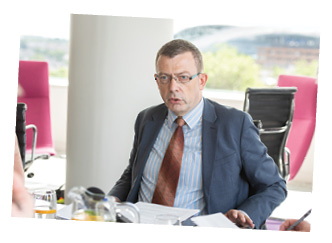
A third of people will not be able to afford housing from their own means and this goes beyond those that are eligible for social housing.
Mark Prentice
Thinking about housing in its totality, as a global corporate entity we would like to expand our footprint in Ireland and do more things in Dublin. Despite paying great salaries, affordable housing for our people is really difficult. Our people are having to travel further and further into Dublin to work and the infrastructure is being clogged up. From our perspective we don’t see the opportunity to grow our workforce if they can’t find somewhere to live. That puts pressure on the whole system. You can see this with how quickly rental properties get snapped up in Dublin and at significant rental levels.
Maria Bailey, TD
It is also about quality of life. The Ireland 2040 plan had over 30 public consultation meetings around the country. One of the interesting facts that emerged that I found stark was that 10,000 people commute from Portlaoise to Dublin each day and for some that has had an impact on their quality of life, stress and childcare. It is not just about throwing houses onto a site but recognising the particular needs for that area. Sometimes that means making bold and unpopular choices. Bad planning in the past pushed people out beyond the greater Dublin area where there wasn’t the proper infrastructure. A good example where this has changed is Cherrywood. There were 12 to 13 different land owners involved and it became an SDZ [Strategic Development Zone] in 2006 and then the infrastructure went in first. The infrastructure is now there, ready to build new homes. That approach means thinking ahead 10, 20, 30 years and looking at the requirements of the area.
Is the experience of family homelessness so different from what has come before that we need a ‘dedicated family homelessness strategy’? What would the main features of it be?
Pat Dennigan
Family homelessness is quite different from the traditional stereotype of single people sleeping rough on the streets. It has also a far-reaching effect on children and what they perceive as normal. It affects their education, their nutrition and how they develop friendships. Focus Ireland has called for two things. Firstly, we should guarantee, as a nation, that no family should remain no longer than six months in emergency accommodation. Six months is an arbitrary number, but the longer people stay in emergency accommodation the greater the impact on them and the greater the support required when they leave. Secondly, we call for a specific targeted plan to deal with the family homelessness issue. Approximately, 80 families become homeless each month and around 40 families leave emergency accommodation each month, generally into the private rented sector. It is therefore a growing problem.
Rory O’Donnell
I would be ambivalent about a dedicated family homeless strategy. We need to prevent homelessness and further develop the ‘housing first’ approach to homelessness. That said, the June 2018 report of the Homelessness Inter-Agency Group highlights a range of initiatives on health, education and childcare to prevent homelessness. In the case of family homelessness, prevention is critical.
Bob Jordan
I don’t think we need a separate family homelessness strategy. The strategy is ‘Rebuilding Ireland’ and that covers both homelessness and housing. Previous homelessness strategies were delinked from the housing strategy and focused on emergency accommodation. No one wants to see anyone living in a hotel. The government has moved to provide more family-type arrangements with the family hubs. They are not ideal, but they allow various agencies to wrap their supports around a dedicated facility. HAP is working and is helping to get people out of homelessness and prevents others becoming homeless. Homelessness is really about flaws in the housing system and taking it out separately isn’t going to lead to housing solutions for families.

It is not just about throwing houses onto a site but recognising the particular needs for that area. Sometimes that means making bold and unpopular choices.
Mark Prentice
The traditional view of homelessness is very different from reality. Since we have been involved with Focus Ireland our stakeholders are always surprised at the numbers involved. The more we have engaged with Focus Ireland we not only see the financial aspects of becoming homeless but the emotional impact on families, particularly the kids. In being homeless, children struggle to maintain school attendance, maintain friendships and find themselves in a new environment and often don’t have a place to study. These are the things that made us get involved and we have all become emotionally attached, seeing families in very difficult situations. Through the prevention work with Focus Ireland we see the sheer relief of families being able to stay in their own home – something we all take for granted. It does make financial sense to keep families in their own home, but putting the financial aspects to one side, it is a duty on us as a society to try and protect families and we believe that the work that Focus Ireland and others are doing to prevent homelessness is crucial in that. Their work in case management helps families access the right advice and support and removes that feeling of isolation. A lot of the support we give to Focus Ireland is centred on helping kids feel part of normal society by giving them outlets such as a summer scheme or a Christmas party – then when they go into school and are asked what they did at the weekend they can say more than just ‘I was in a hotel room’.
Maria Bailey, TD
Sometimes you need to take the emotion out of a traumatic situation and take a hard look at the facts. The age profile of those who find themselves homeless is quite stark, with most aged between 18 and 24. We need early intervention to support people before they become homeless. I have visited many of the family hubs and while the hub is not ideal or a home it is an environment where they can feel safe. From a child’s perspective you are trying to make life as normal as physically possible with child care facilities, homework rooms and proximity to local schools. There is a range of supports and there are also families in the same situation. It is an interim home while supply is underway.
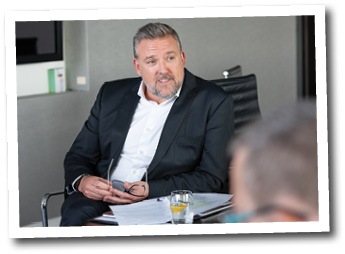
It is a duty on us as a society to try and protect families and we believe that the work that Focus Ireland and others are doing to prevent homelessness is crucial.
How can we slow down the flow into homelessness? Would improved security for tenants in the buy-to-let sector lead to a reduced level of investment in the private rental sector?
Pat Dennigan
One of the successes in our working with Bord Gáis Energy was the Dublin 15 Prevention programme. In conjunction with state agencies we targeted people who were in danger of experiencing homelessness. Over 200 families came forward and we dealt with 100 families on an ongoing basis and as a result 70 of them are still in their own homes six months later. That was a good pilot for targeting people who may need help. We are also doing a similar pilot scheme in Dublin 24 and see scope on a much wider basis.
The longer people stay in emergency accommodation the greater the impact on them and the greater the support required when they leave.
Rory O’Donnell
For prevention there are policy and legal changes that could help stem the flow into homelessness. NESC outlined a ‘secure occupancy package’ in its 2015 report Ireland’s Rental Sector: Pathways to Secure Occupancy and Affordable Supply. There are several elements to this. One is rent certainty and we have made some, limited, progress on that. The second is making leases indefinite as they are in many other countries. The third, and importantly, is changing the conditions of sale of a property so that it is no longer a reason to end a tenancy. The Focus Ireland research shows that the flow into homelessness, particularly for families, is from property sales within the private rented sector. In many countries, this is not a condition to end a tenancy, and it is not the case for commercial property in Ireland. We have all seen the ‘tenant not affected’ signs in the commercial sector. Such a simple legal change would have a significant effect in preventing homelessness.
Land supply is very patchy and very costly, and this underpins high cost and unaffordability in the housing system.
Bob Jordan
The private rented sector was in decline for most of the twentieth century, but it has now come back in a major way. It was virtually unregulated until the Residential Tenancies Act in 2004. Half of families that end up homeless come from the private rented sector. The private rented sector in Ireland, like the UK, is a cottage industry. We need much more professionalism in the sector and more landlords with larger portfolios. There have been more institutional landlords entering the market, but they have been coming in at the top end of the market and we need more coming in on the affordable side.
Maria Bailey, TD
Approximately 86 per cent of landlords own one or two properties and 64 per cent own one. Many of these bought the property at the height of the market and were then unable to sell when they had to move on. We must be cognisant to any changes in the sector that might impact on these people. Rent pressure zones do put regulation into the system but we need to balance the needs of both tenants and landlords. There is also more security of tenure with longer notices of termination and limits on the reasons for increasing rents. Purpose built student accommodation has also a role to play in taking students out of the private rental sector.
International evidence shows that responding to homeless crises with more night shelters (shelterisation) makes the problem longer and deeper and does not provide a long-term solution. What can be done to move towards longer term sustainable solutions to homelessness in Ireland?
Maria Bailey, TD
We need shelters to house very vulnerable people while we get the supply up and running. Shelters are an interim solution and there is a misconception around them. Sometimes when people come into shelters their needs can be complex but they are identified and they stay in the system to receive the relevant care.
Bob Jordan
Shelters are a harm reduction measure. The alternative is sleeping on the streets. Although there will be a continued need for emergency accommodation, my role in Housing First looks to bypass that system by taking people who are rough sleeping or long-term users of emergency accommodation and putting them into permanent housing, with intensive wraparound supports in terms of health and housing. They get daily visits, sometimes multiple visits each day, and a rapid response in terms of psychiatric care or support for substance abuse. It has a 90 per cent success rate and I am currently developing a national implementation plan. Although most people move through homelessness and don’t need a lot of support, this group of people need a lot of support.
Pat Dennigan
Our approach in Focus Ireland has two strands. The first is prevention and the second a sustained exit from homelessness. A much greater concentration on the provision of permanent homes is part of the answer. Housing First is a great development. We have operated this model in partnership with the Peter McVerry Trust for the past three years. It has had a great impact, particularly for those sleeping rough for several years. We have taken a ‘housing-led’ approach particularly outside Dublin in Limerick, the Mid-West, Cork and Waterford. We put someone in a house and use a case management approach to support them. Bord Gáis Energy has supported us in providing case management services. In our experience, someone is four times as likely to move out of homelessness if they have a case manager.
Participant profiles

Maria Bailey, TD is Chair of the Joint Oireachtas Committee on Housing, Planning and Local Government, having been elected to the 32nd Dáil in February 2016. She is the 100th woman to have been elected to the Dáil and has always had a keen interest in Planning and Development issues. In her role as Committee Chair she has overseen the publishing of reports on the Impact of Short Term Lettings on Ireland’s Housing and Rental Market, Safe as Houses – a report on Building Standards, Building Controls and Consumer Protection, and a report on Housing Options for Older People. Maria was involved in the public consultation process which informed ‘Ireland 2040’ and is committed to the delivery of affordable housing and has formulated ambitious policies to support this. She is also working on a new policy with her committee on housing for assisted and independent living for older people.

Pat Dennigan is the Chief Executive Officer of Focus Ireland and its sister approved housing body Focus Housing Association. He joined Focus in 2014 as head of the finance function, adding responsibility for property in 2016. He was appointed Chief Executive in March of this year. Pat is a Fellow of Chartered Accountants Ireland. Prior to joining Focus Ireland, Pat held a number of senior finance and operations roles in companies such as Nortel Networks and Boston Scientific. He is a past president of Galway Lions Club and is a current member of the Charity SORP committee.

Bob Jordan is the National Director of Housing First, a new post established this year to co-ordinate and drive the delivery of Housing First across the Republic of Ireland. He is based in the Dublin Region Homeless Executive and he is currently finalising a national implementation plan for Housing First to be published over the summer. His previous role was Special Adviser to the former Minister for Housing, Planning and Local Government. He was CEO of national housing charity Threshold from 2007 to 2016. Prior to this, he worked in a senior management role for Dublin Simon Community. He is a graduate of Trinity College Dublin and holds postgraduate qualifications from Dublin City University.

Dr Rory O’Donnell is Director of the National Economic and Social Council (NESC). In his work as Economist and later Director at NESC he undertook and led analysis on a wide range of economic, social and environmental issues aimed at creation of a shared understanding within the Council and in the Irish policy system. He has written extensively on social partnership and has been invited to speak internationally on social dialogue and concertation. He was previously Jean Monet Professor of Business at University College Dublin. He holds an MSc in Economics from the University of London and a PhD from the University of Cambridge.

Mark Prentice is Managing Director (Interim) of Bord Gáis Energy. He has been with Bord Gáis Energy since September 2011 and was part of the management team which both successfully led the business through the sale process to Centrica and the subsequent growth of the Retail business post gas market deregulation. Mark has held the role of Head of Retail at Bord Gáis Energy for over six years with responsibility for sales, marketing and customer strategy across the B2C, B2B and Services businesses. Prior to 2011, he was Managing Director of firmus energy for six years (Bord Gáis’ supply and distribution subsidiary company in Northern Ireland). Mark is a graduate of the University of Ulster.


